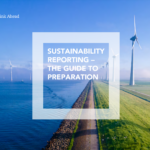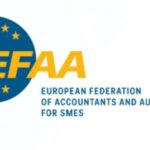The Group of 100, representing the chief financial officers of Australias largest business enterprises, and KPMG today released a comprehensive good practice guide for companies and organisations engaged in the preparation of sustainability reports.
The publication, entitled Sustainability Reporting: A Guide will provide directors and senior executives with a timely and useful tool when addressing this rapidly evolving area of reporting.
Concerns about global warming, atypical weather patterns and the proposed introduction of a national carbon trading scheme and community expectations have combined to make sustainability reporting a mainstream issue.
The trend towards ESG (environmental, social, governance) reporting is driven by two key factors:
An increasing recognition of the potential for sustainability related factors to materially affect a companys long term economic performance.
The need for the business community and individual companies to appropriately respond to issues of sustainable development to meet community expectations
Commenting on the release of the guide, Tony Reeves, National President of G100, said sustainability reporting had now gone mainstream.
Stakeholders are increasingly interested in understanding the approach and performance of companies managing the sustainability aspects of their activities including the potential for value creation.
The CFOs of companies are also in the front line when it comes to the preparation of such reports and identifying any risks or financial impacts associated with ESG reporting. This guide while not prescriptive will provide preparers with a highly useful framework for reporting.
On July 1 under the National Greenhouse and Energy Reporting Act, companies will be required to register and report if their emissions of greenhouse gas reach certain kilotonne levels eg 125kgt from a single site.
The coming reporting season will see sustainability reporting assume greater significance with Australia set to move to an Emissions Trading regime by 2010, said Rob Hogarth, senior partner of KPMG and leader of the working committee which developed the guide.
Analysts are becoming acutely interested in an organisations exposure to carbon and their strategic response to climate change and other sustainability issues.
ESG reporting, once confined to specialist investment analysts, is now an area of broader interest as analysts seek information which in turn can be built into investment models. Effective sustainability reporting has a key role to play in bridging the communications gap.
The guide should not be viewed as a reporting template or blueprint as different companies will have different approaches reflecting the business sectors they are in such as financial services, retailing or resources, said Tony Reeves.
However, key principles in the guide can be applied across all organisations.



